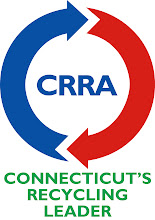A proposal by Attorney General Richard Blumenthal for the Department of Public Utility Control to regulate garbage disposal continues to generate interest. For instance, it was the subject of this editorial in the Connecticut section of the New York Times on Sunday, Sept. 30, and there is more news coverage to come.
Attorney General Blumenthal announced his proposal after discussing the matter with a group of Fairfield County mayors and first selectmen, who explained to him that the operator of the Bridgeport trash-to-energy plant could have a de facto unregulated monopoly on trash disposal starting January 1, 2009, when it can take full control of the facility.
Read the Attorney General’s news release here.
Connecticut has six trash-to-energy plants that process about 90 percent of the state’s non-recycled garbage. Within 10 years, five of those plants could be completely under private control, meaning their owners could charge whatever they feel the market would bear.
Trash disposal is vital to protecting the environment and public health. It is an essential public service.
At the center of Blumenthal’s argument is the fact that there are no other disposal facilities in southwestern Connecticut, and it is apparent that no new trash-to-energy plants or solid waste landfills will be built in Connecticut, so towns in that part of the state will have two choices: do business with the Bridgeport plant or ship their trash by truck or rail to a landfill in Ohio or Pennsylvania or Virginia. CRRA has contended for years that relying on out-of-state facilities would mean the people of Connecticut would have no control over how their trash is disposed of (do other states have the same strict environmental safeguards as Connecticut?) or how much it would cost (could other states impose new taxes on out-of-state trash haulers? And what about the cost of diesel fuel?).
Adding trash disposal to DPUC’s list of responsibilities would require legislation. Such oversight would need to be managed within the towns’ flow-control rights as granted by a recent U.S. Supreme Court decision.
Since 1988, CRRA has had a contract with Wheelabrator, which runs the Bridgeport plant, to take garbage from 18 CRRA member cities and towns in southwestern Connecticut. When that contract expires, on December 31, 2008, the plant ownership will transfer to Wheelabrator. Unless we negotiate a new or extended renewal agreement with Wheelabrator, the plant will be Wheelabrator’s to use as it pleases.
CRRA is in good-faith negotiations with Wheelabrator, and a successful resolution of those negotiations – a long-term contract at a below-market price – is our goal and our preference. Further, we are optimistic about reaching an agreement in the next two or three months. The Attorney General’s proposal does not impact or interfere with CRRA’s initative to negotiate an agreement renewal. We are here to serve the towns’ best interests, and that long-term below-market contract we’re working toward would accomplish that mission.
We do need to clarify a couple of misconceptions that have arisen in the press coverage of this proposal:
• First, some of the press accounts seemed to confuse disposal with hauling. A hauler – either your city or town or a private company – collects your trash at the curb and brings it to us for disposal. CRRA is not a hauler. The Attorney General has also called for stricter oversight of the hauling industry.
• Second, CRRA, contrary to one report, operates under plenty of oversight. Our Board of Directors – mainly mayors and first selectmen of cities and towns we serve – is appointed by the Governor and legislative leadership. And we will compare our record of openness and transparency with any other public entity.
We should point out that the Mid-Connecticut Project trash-to-energy facility in Hartford is owned by CRRA lock, stock and barrel, and barring any unforeseen circumstances it will be publicly owned permanently.
What do you think? Click on the word "comments" below to tell us.
Thursday, October 4, 2007
Subscribe to:
Post Comments (Atom)

No comments:
Post a Comment